From the playground to the workplace, socialization is the secret sauce that makes life a little more bearable. But what is socialization, really? In this article, we’ll break it down like a party hostess breaking the ice, complete with definitions, examples, and a rundown of the socialization agents that make it all possible. So, grab your favorite beverage, take a seat, and let’s dive into the fascinating world of socialization.

I hope you enjoy reading this blog post. If you want to do my course on how to homeschool, click here.
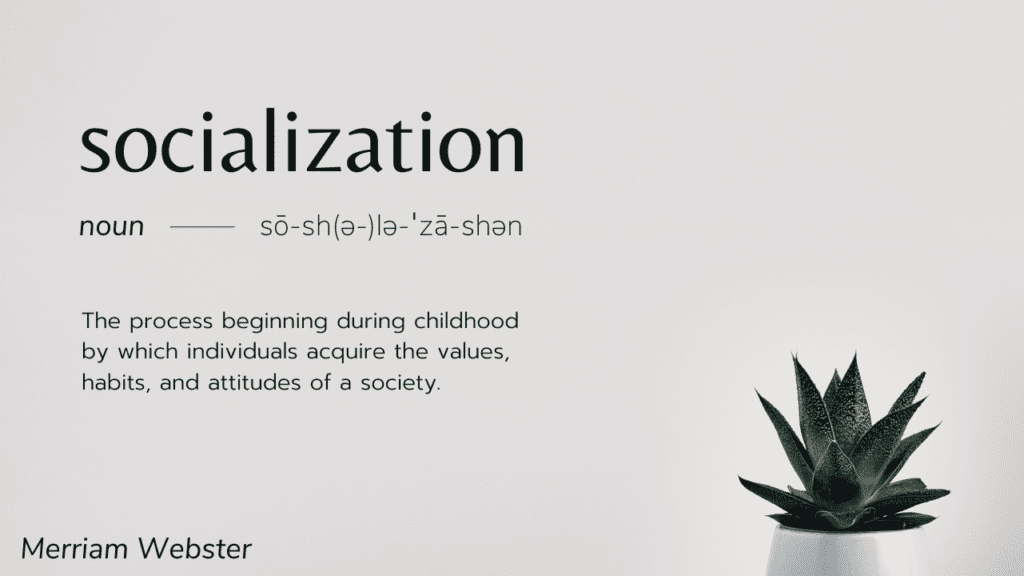 Some of the links in this post are affiliate links.
Some of the links in this post are affiliate links.What is Socialization, and Why is it Important?
Socialization is a process that occurs over a lifetime where we acquire inherited social norms, values, and behaviors from other individuals.
Socialization is also when we pass on our social habits to others in society. This interaction determines how we fit into our community and participate in it.
The purpose of socialization is to learn how to be a functioning member of society. That is, how to not make a faux pas at a party, how you know not to wear a bra if you’re a boy, or how to know to put on deodorant in a restaurant. We train ourselves or others to know what to do in certain situations.
What is an Agent of Socialization?
There are nine main agents of socialization. These are:
- family – the main agent
- peers – significant influences
- school – breaks bonding with parents. Influence depends on the values the school and teachers hold. (i.e., Julian the Apostate wouldn’t let Christians teach as he knew teachers could change the minds of a generation).
- mass media – the importance of its influence depends on what is read, watched, or listened to and the frequency with which it is consumed
- neighbors and the neighborhood
- religion – I find this one isn’t mentioned too much, but it is by far the most important in many people’s lives. I’ve seen people completely change the course of their life stories overnight because they’ve heard about Jesus’ love for them. See Run, Baby, Run as an example.
- Daycare
- sports and
- the workplace.
There are others, but these are the most significant influences on people.
Advantages of Socialization
There are several benefits of socialization. These are:
- less loneliness which leads to greater well-being
- building constructive relationships (unless you have poor peer groups, as in some schools)
- improving the growth and development of a person
- occupying the mind and keeping it ticking so you can avoid mental deterioration
- a reduction in stress and anxiety
- learning how other cultures (or groups) like to do things – understanding their perspectives and attributes
- getting emotional, physical, and spiritual support – one reason Christians go to church
We are made to be social beings, and things go terribly wrong when we isolate ourselves.
Types of Socialization
There are a few different types of socialization. These are:
- primary
- secondary
- developmental
- anticipatory
- desocialization and
- resocialization.
We’ll go through these separately below and give some examples.
Primary Socialization
Primary socialization is the process by which a child learns the values, norms, and behaviors necessary to navigate and participate in a specific culture or society.
An example is when a child learns they should put on deodorant as that’s the norm in society.
Secondary Socialization
Secondary socialization is when a person learns the proper behavior in a microcosm of individuals (or a small group) part of the larger society.
A great example is when children in a grammar school believe it is ‘cool’ to study because they have several other good examples around them who study hard.
Another example is when a child learns to put down other children in their peer group because that’s what his friends (the smaller microcosm of individuals) want him to do.
Developmental Socialization
Developmental socialization is when you deliberately focus on developing socialization skills that help you learn a process.
An example is learning how to speak publicly at Toastmasters because you’re not a good public speaker or get shy when you want to talk in public.
Anticipatory Socialization
Anticipatory socialization is when an individual rehearses for a future situation they are anticipating. They start acting out what it would be like to be in that situation.
An example is when you do work experience to determine if you like a particular profession.
Desocialization
Desocialization is training to take away our past self-images, which we previously learned (by socialization).
Interestingly, an excellent example of desocialization is the deschooling process whereby homeschoolers deinstitutionalize themselves from the mindset of school (see Ivan Illich quotes here for context).
Resocialization
Resocialization is learning new norms and values to fit into new situations with which you have not been familiar in the past.
An example of resocialization is: when you marry, although you don’t like football, you learn to like it because your husband likes it. Soon you start learning about your husband’s football team and go to games with him.
The Process of Socialization
The process of socialization has some steps we should consider. These steps are commonly called stages of socialization. The stages of socialization are:
- Investigation – whereby an individual sizes up a group and tries to see if it will be a good fit for them. The group does the same. The end of this stage is when the group invites the new person in, and the person accepts.
- Socialization – the new member accepts the group’s culture, whether good or bad. They assimilate into the group and adopt their norms, values, and beliefs.
- Maintenance – the new member and the group negotiate what the group expects of the new member (how they should act or contribute). The individual can be thrown out if they don’t meet group expectations, or they can renegotiate and return to the group.
- Resocialization – depending on the outcome of the maintenance stage, the member will be received back into the group’s fold and learn to act accordingly, or they will be ejected and have to learn to live outside the group.
- Remembrance – people who have left the group remember their memories in the group. They make sense of their exit and figure out their reasons for going.
The movie Mean Girls is an excellent example of school socialization as the main character tries to fit into her new environment after being homeschooled for a time.
Social Skills
Social skills are any competency you learn that helps you interact and talk with others, where social rules and relationships are made and transmitted in different ways.
To have these skills, you have to interact with other people and form relationships.
According to Wiki:
Social skills are the tools that enable people to communicate, learn, ask for help, get needs met in appropriate ways, get along with others, make friends, develop healthy relationships, protect themselves, and in general, be able to interact with society harmoniously.[1] Social skills build essential character traits like trustworthiness, respectfulness, responsibility, fairness, caring, and citizenship. These traits help build an internal moral compass, allowing individuals to make good choices in thinking and behavior, resulting in social competence.
Social skills include:
- persuasion
- mentoring
- stewardship
- delegation
- negotiation
- coordination
- active listening and
- social perceptiveness.

Homeschool Socialization
The History of Socialization
The history of socialization dates back to the beginning of humankind.
Starting from our earliest ancestors, humans have been communicating and forming relationships with each other.
As societies evolved, so did the way in which people interacted.
Through this process, we developed a sense of what is socially acceptable and unacceptable, as well as norms for how to live together in harmony.
Today’s socialization practices are a combination of generations-old customs mixed with modern changes in technology and advancements in communication.
Through the rise of social media, we have seen an increased emphasis on online interactions that can impact how we interact online and offline.
This has led to a more connected world where people can connect regardless of geographic location or cultural background. Socialization plays an important role in helping us understand our place within society and how we interact with those around us.
Stages of Moral Development?
Moral development is a fascinating and complex topic that has long been studied by psychologists, philosophers, and religious scholars. There are many theories on this topic, but other than that proposed in the church by Christians, the most widely accepted is Lawrence Kohlberg’s theory of moral development.
According to Kohlberg’s framework, moral development consists of several stages that range from basic obedience to the laws of society to the highest level of principled behavior.
The first stage of Kohlberg’s model is based on punishment and reward; children learn right from wrong depending on whether their actions will be met with a reward or a punishment. The second stage involves understanding the rules and expectations set by society, while at the third stage children begin reasoning about potential consequences for their actions.
At this point they may also feel empathy for others who don’t follow societal rules.
But, God Makes the Difference
Behaviourism
Behaviorism is a school of thought within psychology that studies observable behavior. It is based on the fundamental principle that all behaviors are learned through interaction with the environment.
The main proponent of this school of thought was John B. Watson, who, in 1913, declared that “psychology as a behaviorist views it is a purely objective experimental branch of natural science”.
According to behaviorists, all behaviors can be explained by reference to external stimuli and do not need to refer to internal mental states such as cognitions, emotions, or intentions.
This contrasts with other schools of thought, such as psychoanalysis and cognitive psychology, which focus more heavily on internal processes rather than solely behavioral phenomena.
Behaviorists often employ classical conditioning techniques to study how environmental stimuli impact an individual’s behavior.
Conclusion
Socialization is vital in child development as it protects against anxiety, depression, and other negative consequences. It is a powerful tool that can be used for good or evil. Socialization can be used for evil when parents, teachers, or peers don’t love and care for those they’re influencing; it can be used for good when they care for those they influence. How will you use it?
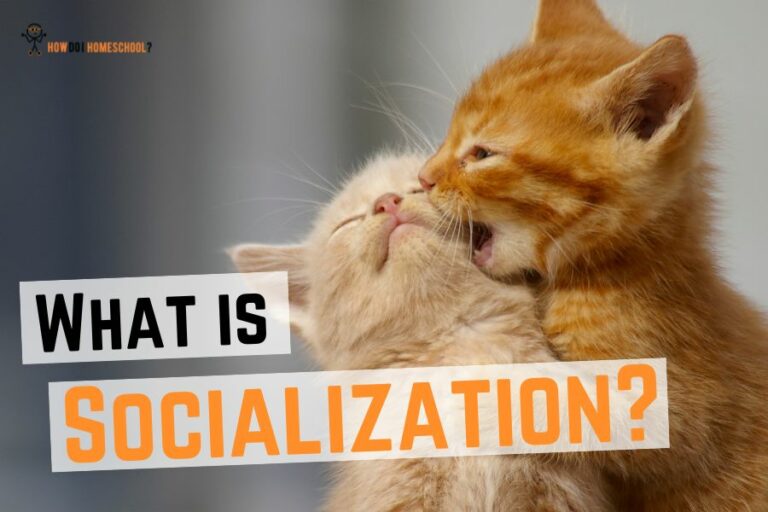
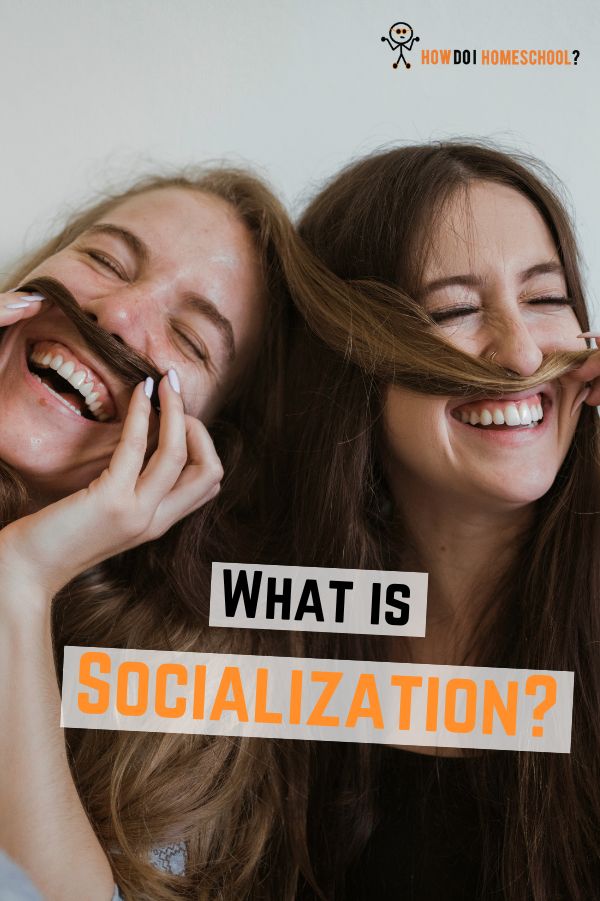
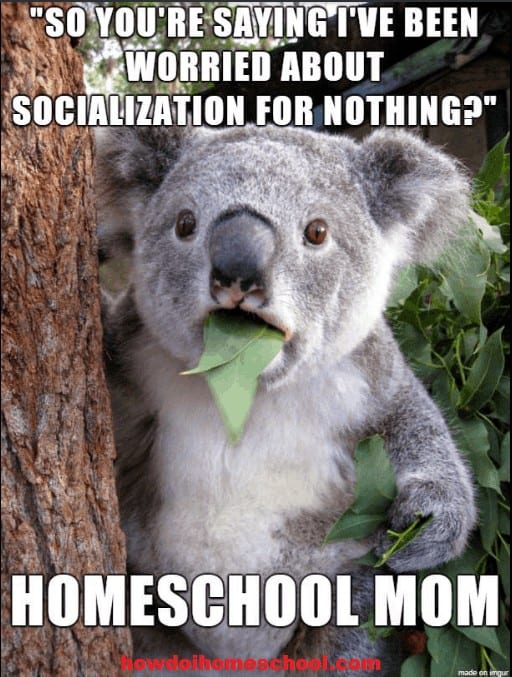

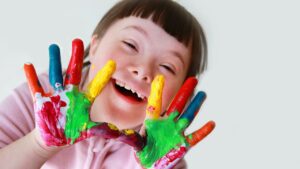

Thanks
No worries!